Reading food labels can be a rewarding activity. As well as providing endless entertainment (I love being warned that there are nuts in my nuts), they are a fountain of useful information. Ingredient list. Calorie count. Use by date. Yes, plenty of data there, even if you need a magnifying glass to decipher the most interesting bits.
Some things, though, are never mentioned on the label. Felicity Lawrence investigates the invisible, unpleasant parts of our food supply.
Not On The Label is an angry, shocking book that could change your eating habits forever.


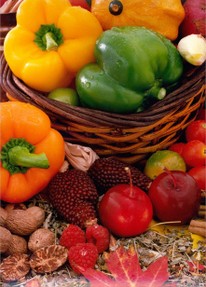 Once upon a time food was grown. Today, it's manufactured. It used to nourish, now it makes us ill. Diabetes rates skyrocket, cardiovascular diseases, cancers and food allergies are not far behind.
Once upon a time food was grown. Today, it's manufactured. It used to nourish, now it makes us ill. Diabetes rates skyrocket, cardiovascular diseases, cancers and food allergies are not far behind. 
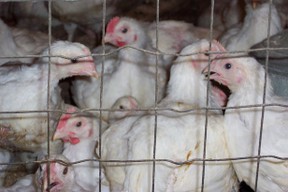 Not On The Label had been written long before the recent horsemeat outrage hit headlines but what Lawrence discloses about meat processing is no less scandalous. While adding horse to other meats is (as far as we know) a relatively new trick, beef and pork DNA have been finding their way into poultry for years. That's not the end of chilling news. If Lawrence is to be believed, it is possible to slice foreign DNA so thoroughly that adulterants escape detection. One only hopes that horsemeat is the worst that can happen...
Not On The Label had been written long before the recent horsemeat outrage hit headlines but what Lawrence discloses about meat processing is no less scandalous. While adding horse to other meats is (as far as we know) a relatively new trick, beef and pork DNA have been finding their way into poultry for years. That's not the end of chilling news. If Lawrence is to be believed, it is possible to slice foreign DNA so thoroughly that adulterants escape detection. One only hopes that horsemeat is the worst that can happen... 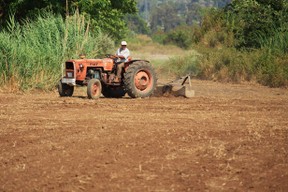 Marketing people like us to imagine food growers as hard-working, honest and happy individuals. The Smiling Farmer photos can be found in pretty much every supermarket. My oh my, if this nice guy on such a nice farm is producing my food, surely it must be of the very highest quality?
Marketing people like us to imagine food growers as hard-working, honest and happy individuals. The Smiling Farmer photos can be found in pretty much every supermarket. My oh my, if this nice guy on such a nice farm is producing my food, surely it must be of the very highest quality? 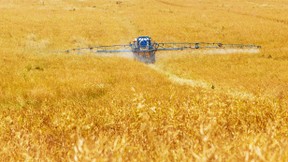 Pesticide residues. After reading the book I pledged to be twice as enthusiastic in washing fruit and veg. Apples don't get perfect by themselves...
Pesticide residues. After reading the book I pledged to be twice as enthusiastic in washing fruit and veg. Apples don't get perfect by themselves... 


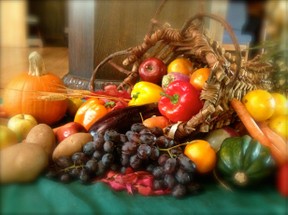 Felicity Lawrence provides a whole spectrum of ideas here, ranging from political to grassroot.
Felicity Lawrence provides a whole spectrum of ideas here, ranging from political to grassroot. 



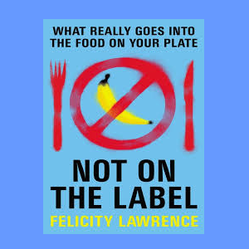

 Halloween – it’s time to get REALLY scaredon 08/31/2014
Halloween – it’s time to get REALLY scaredon 08/31/2014
 10 tips on how to get some writing doneon 08/31/2014
10 tips on how to get some writing doneon 08/31/2014
 Dervla Murphyon 08/26/2014
Dervla Murphyon 08/26/2014
 Forget colouring pageson 08/23/2014
Forget colouring pageson 08/23/2014

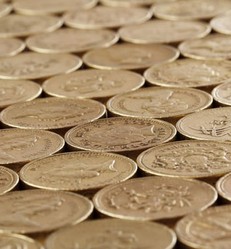
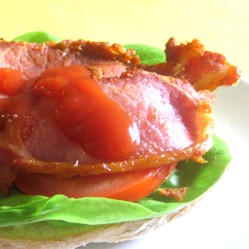
Comments
I agree. I've been growing some of my food since this spring, too. This way I know EXACTLY what I eat. Thanks for stopping by
I agree. I've been growing some of my food since this spring, too. This way I know EXACTLY what I eat. Thanks for stopping by
I've been trying to eat as much as possible from local sources where you can at least know first hand where the food comes from. Organic is more expensive, but maybe we need to change what we eat to make up for it. Simple foods are the way to go.
Judging by your wizzes, I wouldn't mind a little rummage around your shelves :)
Yes, the more I learn about food industry, the more uneasy I get during meals. Anger is there too, especially when I'm confronted with all the ads saying how much they care about customer's health and happiness...
I wonder how the costs of organic foods compare around the world? Who's the luckiest ;) ?
I have 'Not on the Label' on my book-shelves too. Very, very good book.
It is very disturbing what is being sold and passed off as wholesome food. I buy mostly organic, and work very hard at keeping the cost reasonable. We might have more affordable organic food in the US.
True, unfortunately. I can't afford organic as a regular fare either. Sometimes, though, is better than never and if the food is really wholesome and ethically satisfying, then it's worth it.
Thank you :)
Well, you know, we have to simply do the best we can. I agree that growing your own is the best way but fewer and fewer people today are in the position to do so... me included :(
Agreeing with Elias here. When I was making a bit more money in my youth (before job satisfaction kicked in over financial gain) I took part in a stakeholder project about organic food and recycled product availability. Apart from the fact that the amounts were tailored to a family of 4 scenario, the goods were so darn expensive that it wasn't financially viable even for me with disposable income to drop on this. Can't imagine how much more problematic it would have been for a family.